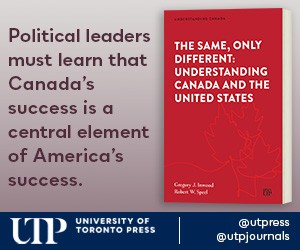Trail, B.C. produced the 1939 World Ice Hockey Champion Smoke Eaters, longtime Canadian Labour Congress president Ken Georgetti, NHL All Star Ray Ferraro and historian Ron Verzuh, a smelter worker’s son who clocked hours at the Cominco mill in its heyday and became a gifted chronicler of the nation’s labour history. “If there was ever a workplace that would persuade me to return to school it was the lead furnaces,” writes Verzuh.
Smelter Wars through meticulous research and a warm narrative documents tensions between managers in a company town and the Communist-led Local 480 of the International Union of Mine, Mill and Smelter Workers. It is also more than that.
Verzuh recaptures an era when home for most Canadians meant a thriving place far from the big cities. It’s not that Trail was off the beaten path; there was no path. The Trans-Canada Highway was not complete until 1962. Years later when Brian Mulroney famously campaigned on the slogan that Canada was a land of “small towns and big dreams” it touched a nostalgic chord with many voters.
Trail was a thrifty Catholic town home to the Cristoforo Colombo Lodge where members recalled the 1931 Vatican degree to beware “the tenets of socialism,” recalls Verzuh: “Many had come from Catholic countries with strong antipathies to leftist ideology. Parents conveyed Old Country convictions to their sons and daughters.”
It had its own radio station where the assistant mill manager gave a 1948 fireside chat entitled Your Union And You. “Very skillfully and highly organized efforts are being made to bring your locals under Communist domination,” listeners were told.
Trail had its own Daily Times with advertised specials at the company store – the shop was finally sold to Hudson’s Bay in 1951 – and newspaper editorials that warned readers “Communist agitators” could only ruin town life for millworkers who never had it so good. This was not all propaganda, writes Verzuh.
“Workers tended to respect the company,” he writes. “It had been instrumental in establishing and transforming Trail into a relatively well-endowed city that provided steady incomes.”
Workers even in recession years could buy automobiles and enjoy Saturday dances with the Kootenay Boys Orchestra at the Legion Hall. The company built the Smoke Eaters’ rink and ran a company health plan. In 1938 it gave every millworker a free turkey and cash bonus, $50 for married men – that’s the modern equivalent of $953 – and $35 for bachelors.
Of course it wasn’t all fat bonuses and free turkey. The Local 480 newspaper the Commentator captured the sentiment in a wry poem:
We never speak of workers’ rights,
We vote for the Company union.
They tell us that it leads to fights,
So I vote for the Company union.
The Company has always said
That men who talk like that are ‘Red,’
We listen to the boss instead
And vote for the Company union.
The town plutocrat was Selwyn Blaylock, Mr. Blaylock. “It was always ‘Mr.,’” recalls Verzuh. He lived in a house so big they later turned it into a hotel. Saturday Night magazine once hailed Blaylock as Canada’s Henry Ford, a proponent of the high-wage, no-union school of management. “Could we not have a few more men like S.G. Blaylock helping to turn each industrial centre into a workingman’s paradise?” asked the magazine.
“Your company is your friend,” Blaylock explained in one speech. “If trouble comes to you it will do its utmost to help you as it has helped hundreds of your fellows in the past.”
When Blaylock spotted an anti-labour article in Liberty magazine he enjoyed it so much that managers were instructed to distribute copies at the mill. It featured “a Frankenstein-like figure stomping on buildings and destroying everything in his wake,” writes Verzuh, a caricature of a church-hating Bolshevik monster: “Across his bare chest was stamped the word ‘Lawlessness.’”
Local 480 “was just barely accepted in Trail,” says Smelter Wars. “Close to half of the more than five thousand smelter workers and their spouses consistently rejected the Communist-led local, many preferring Blaylock’s ‘one big happy family.’”
Today the Cold War battles are forgotten but for local murals that capture the past. The Trail of Verzuh’s boyhood is a different place, “a sleepy provincial town” with retirees, great fishing and a fraction of its old smelter workforce. “The smoke emanating from the smelter stacks is less toxic these days although the company still faces the occasional fine for polluting northern Washington State,” he writes.
“The prospect of a labour movement able to challenge modern day capitalism seems more and more to a bygone era,” says Verzuh, wistfully. Smelter Wars is the story of the era. The book is wonderful.
By Holly Doan
Smelter Wars: A Rebellious Red Trade Union Fights for Its Life in Wartime Western Canada, by Ron Verzuh; University of Toronto Press; 372 pages; ISBN 14875-41125; $34.95









